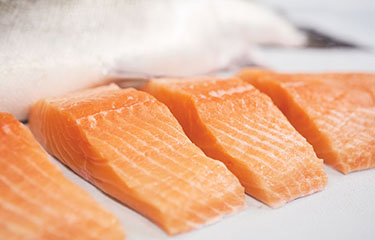AquaBounty’s genetically engineered AquAdvantage salmon is once again going through a U.S. Food and Drug Administration (FDA) environmental assessment (EA) after a lawsuit by multiple organizations led to a court order for additional analysis.
The FDA granted permission for the salmon to be sold in the U.S. in 2015, but a judge ruled in 2020 the agency needed to perform additional review of the salmon to evaluate the chances it could be introduced into the wild and its subsequent danger to wild salmon populations. A judge in San Francisco ruled the FDA did not do its due diligence when considering the possibility of environmental consequences with its approval of the salmon.
“The FDA did not, however, meaningfully analyze what might happen to normal salmon in the event the engineered salmon did survive and establish themselves in the wild," U.S. District Court of Northern California Judge Vince Chhabria wrote. "Even if this scenario was unlikely, the FDA was still required to assess the consequences of it coming to pass."
Despite the criticism, the court did not vacate the approval, which remains in effect. Since the ruling, the FDA has worked on preparing a draft amended environmental assessment, which was recently made available for public comment. The FDA also recently announced it will hold public hearings on the draft environmental assessment.
AquaBounty President and CEO Sylvia Wulf said the company is reviewing the environmental assessment, but is confident it will get the same approvals as before.
“We are continuing to review FDA’s amended environmental assessment and are confident this process will affirm the extremely low likelihood that our salmon could successfully establish a population in the wild. We look forward to having this matter quickly settled and, in the meantime, we will continue to focus on sharing our sustainable, nutritious salmon with our customers,” Wulf said in an AquaBounty release.
In the company's initial review of the FDA's reassessment, Wulf said she believed the agency had arrived at the same conclusion it had in its previous assessment.
“AquaBounty raises fresh Atlantic salmon in a safe, secure, and sustainable way. The likelihood of our salmon escaping our land-based farms, surviving, and establishing a population in the wild is ‘extremely low,’” Wulf said. “Those are FDA’s words in its first review issued in 2015, and in the amended environmental assessment released on 16 November, the FDA once again concluded there is a ‘negligible likelihood’ that our product would ‘cause significant harms’ or even ‘effects’ on the environment of the U.S.”
Wulf said the chances of the company’s land-based farms having escapes are extremely slim, and even if one were to occur, said its salmon are sterile.
“Our highly controlled land-based farms and robust mitigation measures – already approved by federal regulators and in use without issue in our facilities for over 20 years – help prevent any impacts, however unlikely, to the environment, endangered species, or wild fish populations,” she said. “Additionally, our AquaBounty production salmon are female, sterile, and unable to reproduce, providing an additional and redundant biological barrier to protect wild salmon.”
AquaBounty is currently working on its planned salmon recirculating aquaculture system (RAS) in Pioneer, Ohio, U.S.A., a facility the company said will be the first of many as part of its “aggressive” roadmap to growth.
Photo courtesy of AquaBounty







